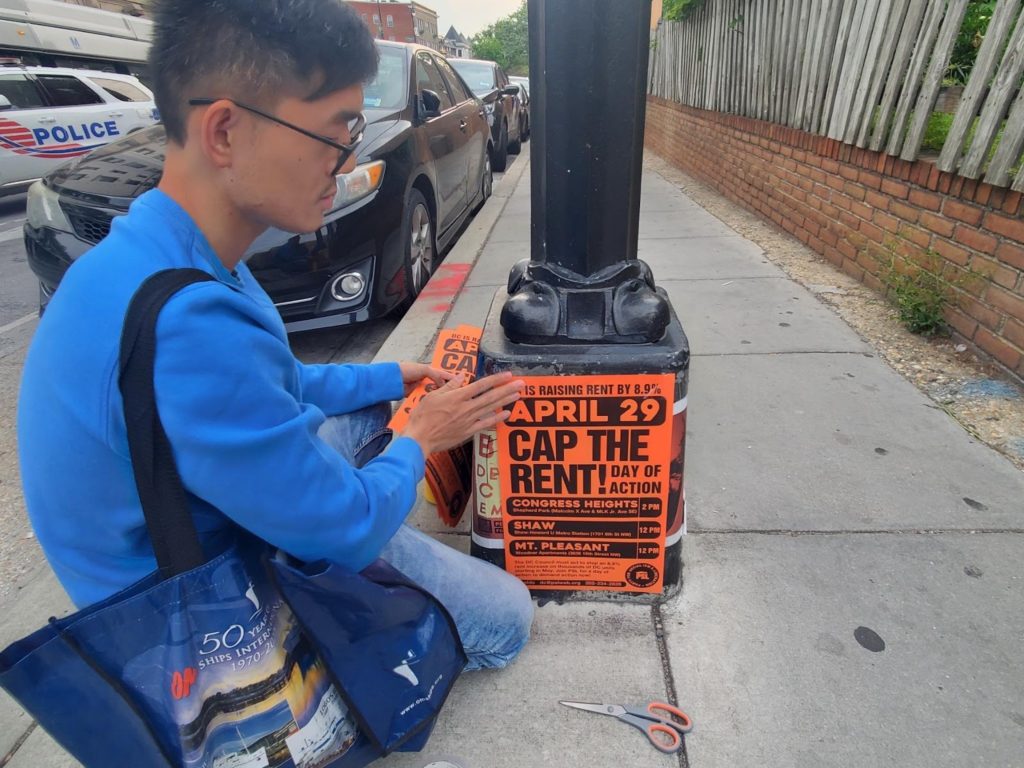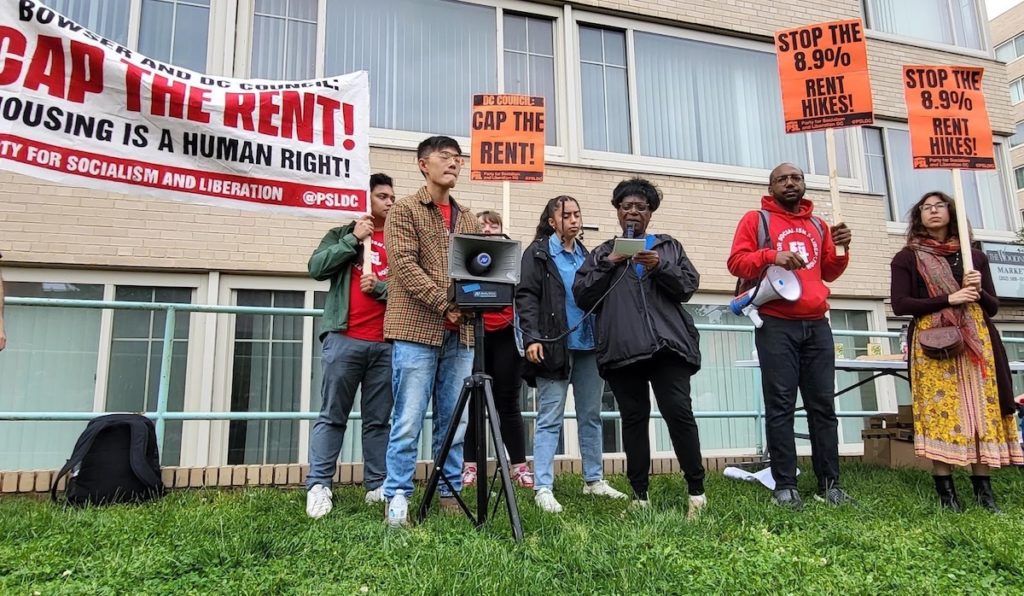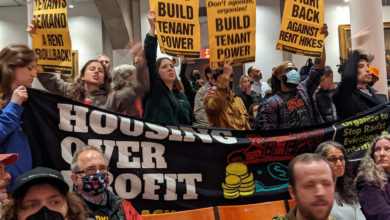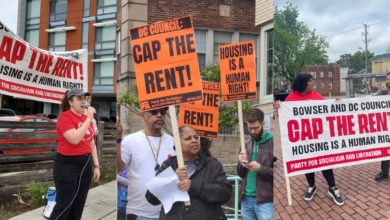On April 29, just two days before the largest rent hike in more than four decades would take effect in Washington D.C., the Party for Socialism and Liberation and local D.C. residents mobilized in the neighborhoods of Mount Pleasant, Shaw and Congress Heights to demand that Mayor Muriel Bowser and the D.C. Council use their authority to cap the outrageous increase.
The day of action was the culmination of weeks of outreach and organizing, and sought to give voice, credence, and solidarity to people in D.C. already struggling with poor living conditions. Speak-outs across the District provided a platform for people to voice their concerns and to see the breadth of support coming from organizers, tenants unions, and working-class tenants facing the brunt of rent aggression. Despite warnings of rain, PSL members, the Woodner Tenants Union, and others came together to support one clear message: “Rent-control” must mean rent controlled.

On the corner of Malcolm X and Martin Luther King Avenue in Southeast D.C., one Congress Heights resident spoke for unity: “We all need to step up and protest this, it affects everybody … except the rich!”
In late February, the council quietly approved an 8.9% allowable increase in rent for rent-controlled housing units, an allowance that took effect on May 1. PSL members conducted on-the-street flyering and postering campaigns for over a month to bring the rent increase to the attention of District residents.
Rent-controlled housing is vitally needed in Washington, D.C. The overall cost of living in D.C. is 53% higher than the national average, while the average cost of housing on its own is 144% higher than the national average. The average individual income in D.C. is slightly over $50,000 a year, while the average cost of living in the District is just under $80,000.
The contradictions of housing under capitalism have been cast in sharp light. With rent increases allowed every year, one would expect to see a corollary increase in wages and income. In reality, the median household income in the District of Columbia has been decreasing since 2019. “We cannot continue to have our rent increase exponentially when our wages are not doing the same,” said Howard University student and D.C. PSL organizer Delaney Leonard in Congress Heights.
Another such contradiction is the high rate of homelessness in the nation’s capital. “How in the world can we have all this homelessness in Washington, D.C., and all these luxury houses nobody can afford?” questioned Brookland Manor Coalition and resident Cheryl Brunson. According to the Community Partnership for the Prevention of Homelessness, “On any given night in the District of Columbia there are 3,403 single persons and 1,007 adults and children in 347 households experiencing homelessness.” On top of these harrowing figures, nearly 84% of people experiencing homelessness in the District are also Black, pointing to the highly racialized structures guiding gentrification.

Each year, the maximum amount landlords are legally permitted to raise rent is calculated based on the rate of inflation reached in the previous year. The Consumer Price Index used to determine inflation rates is exceptionally high in D.C. coming out of 2022 in no small part due to the U.S. war drive against Russia and China.
D.C. residents, despite being taxed to the full extent of the law, have no representation in government. When Congress approves measures that will spike inflation, it is done without any shred of democratic consent from the people who live and work in the District. Such stark increases in rent are part of a historic strategy of gentrification to expel longtime, working-class, predominantly Black residents to make way for affluent, predominantly-white newcomers to the area.
Exactly how much the rent will increase (less than or equal to 8.9%) will vary from unit to unit depending on how much more money individual landlords would like to take for themselves. A system reliant on the goodwill of a small minority of barons ransoming out shelter to the highest bidder is an unacceptable system. These circumstances are not the sole result of conniving land owners, as a tenant of the Woodner importantly acknowledged: “Landlords have been given the power to be as greedy as they want to be by squeezing the hard earned money from the pockets of working-class people.” Landlords are only able to expropriate as much of the income of working people as the government will allow.
The permittance of a nearly 9% increase in rent for people living in “rent-controlled” housing units is a bold-faced reminder that the interests of landlords and developers have not only come to possess the operations of the council and mayor, they have declared the working-class and oppressed people as their enemies. We, the makers of all values and functions in D.C., would do well to remember those who have positioned themselves against us, our needs, and the tides of human liberation.





